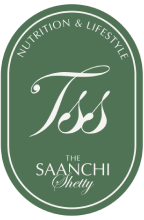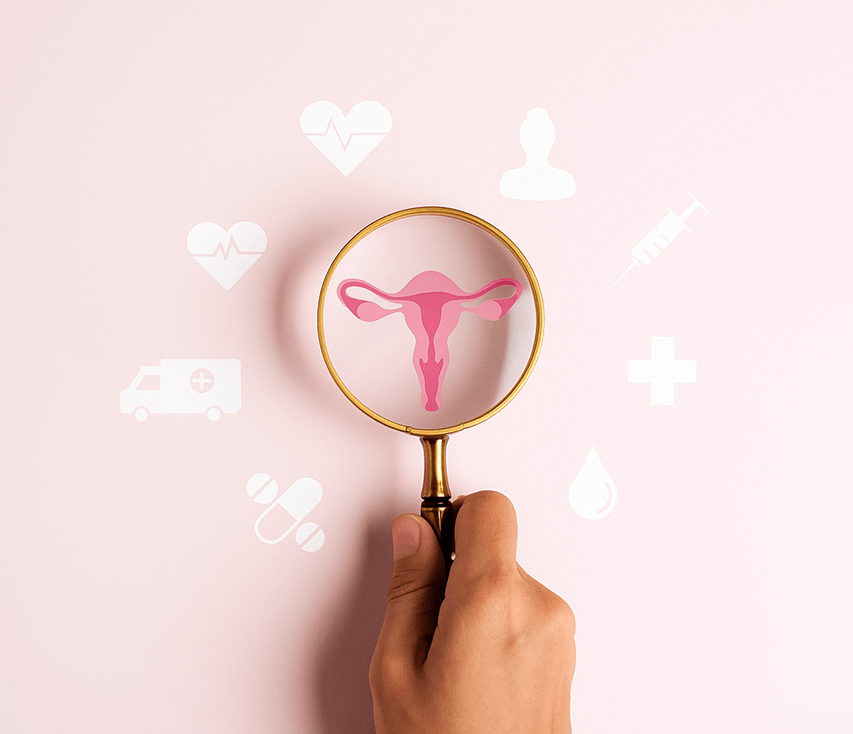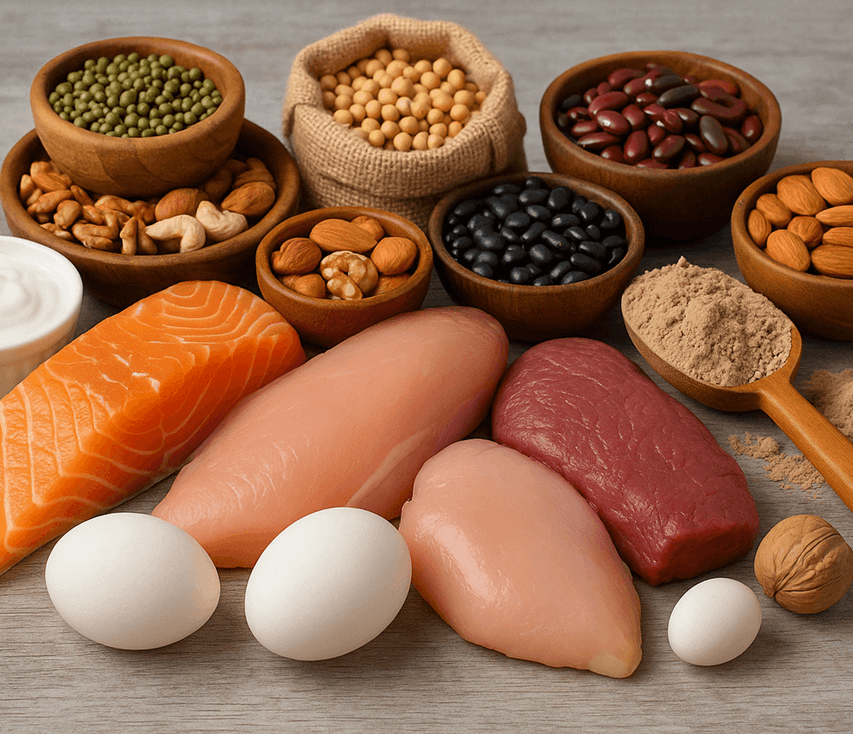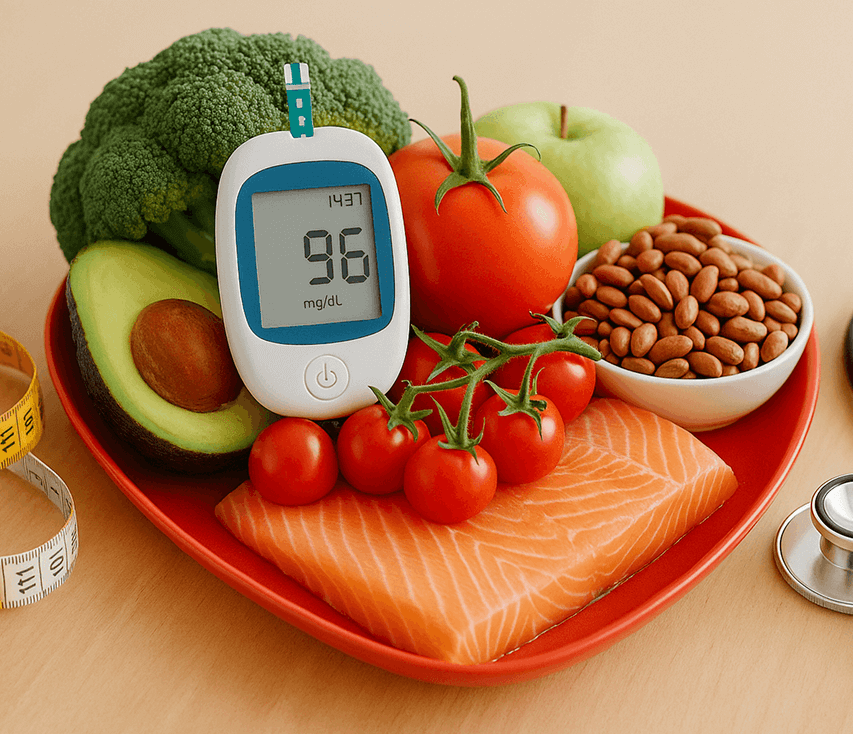Hormonal health plays an integral role in a woman’s overall well-being. It affects everything from energy levels, metabolism, and mood to reproductive health. Hormones are like messengers within the body, influencing many key processes. Whether you’re experiencing menstruation, pregnancy, or menopause, your hormonal balance can shift, creating unique nutritional needs at every stage of life. A thoughtful, well-rounded diet combined with healthy lifestyle habits can provide the support needed to maintain hormonal health and ensure that the body functions at its peak.
The Importance of Nutrition for Hormonal Health
Hormones are essential for regulating critical bodily functions, including metabolism, mood, and reproduction. When hormonal levels are balanced, the body operates smoothly. However, factors such as poor nutrition, high stress levels, and exposure to environmental toxins can lead to imbalances. These imbalances manifest as issues like irregular menstrual cycles, bloating, fatigue, PMS symptoms, and even unexplained weight gain. Proper nutrition is foundational in supporting hormonal health, offering a natural way to prevent and manage these common symptoms.
Menstrual Health and Nutritional Support
The impact of diet on menstrual health is undeniable. Nutritional deficiencies, particularly in iron, healthy fats, and anti-inflammatory nutrients, can contribute to menstrual discomforts such as painful periods, excessive bleeding, and irregular cycles. Women who suffer from intense menstrual pain or heavy bleeding often benefit from a diet rich in anti-inflammatory foods, omega-3 fatty acids, and sufficient iron. These nutrients help regulate the menstrual cycle and ease the discomfort that comes with it.
During menstruation, the body also requires additional iron to replenish the blood lost during the cycle. Incorporating iron-rich foods such as spinach, lentils, quinoa, and lean meats is crucial. Pairing these foods with vitamin C-rich items like citrus fruits or bell peppers helps improve iron absorption, ensuring the body is adequately nourished.
Pregnancy and Fertility Support
Pregnancy and fertility require extra attention to certain nutrients. Folate (also known as folic acid) is crucial for the early development of the fetus and helps prevent birth defects. Omega-3 fatty acids play a vital role in brain development, while iron is essential to support both the mother’s blood volume and the developing baby. A diet abundant in these nutrients can promote a healthy pregnancy and optimize fertility.
Women trying to conceive should focus on nutrient-dense foods like leafy greens, beans, lentils, nuts, seeds, and fatty fish. These foods support hormone production, regulate ovulation, and provide the necessary building blocks for fetal development.
Menopause and Hormonal Changes
As women approach menopause, the body undergoes significant changes, particularly a decline in estrogen levels. This decline can affect bone density, heart health, and mood regulation. To support hormonal health during this stage, it’s essential to focus on a diet rich in calcium, vitamin D, and phytoestrogens. These nutrients help mitigate the effects of declining estrogen levels and support overall well-being.
Calcium and vitamin D are both essential for maintaining bone health. Sources of calcium include dairy products, fortified plant milks, tofu, and leafy greens. Vitamin D, which is also necessary for calcium absorption, can be sourced from sunlight exposure, fortified foods, and supplements. Phytoestrogens—plant-based compounds that mimic estrogen in the body—can be found in foods like soy, flaxseeds, and sesame seeds. These foods help balance estrogen levels naturally during menopause.
Key Nutrients for Hormonal Balance
Maintaining hormonal health requires a steady intake of several essential nutrients. Let’s take a look at some of the most important ones:
Iron
Iron plays a crucial role in blood health. Iron-deficiency anemia can lead to fatigue, weakness, and poor circulation, which is especially important during menstruation, pregnancy, and postpartum recovery. Women who have heavy menstrual periods may also experience a greater risk of iron deficiency. Iron-rich foods such as leafy greens, beans, lentils, tofu, quinoa, and red meat help replenish iron stores and prevent fatigue.
Magnesium
Magnesium is an essential mineral that supports numerous bodily functions, including nerve and muscle function, bone health, and the regulation of blood sugar levels. Magnesium also helps alleviate PMS symptoms like irritability, fatigue, and cramps. It improves sleep quality and supports hormonal regulation. Great sources of magnesium include leafy greens, nuts, seeds, bananas, and whole grains.
Omega-3 Fatty Acids
Omega-3 fatty acids are known for their anti-inflammatory properties and their ability to support hormone production. These essential fats help regulate estrogen levels and improve fertility. Additionally, omega-3s support brain function, mood regulation, and heart health. You can get omega-3 fatty acids from sources like fatty fish (salmon, sardines), flaxseeds, chia seeds, and walnuts.
Calcium and Vitamin D
Calcium is crucial for maintaining bone strength, and vitamin D helps the body absorb calcium effectively. During menopause, declining estrogen levels can increase the risk of osteoporosis, so it’s important to ensure adequate calcium and vitamin D intake. Dairy products, fortified plant milks, leafy greens, and tofu are excellent sources of calcium, while vitamin D can be obtained from sunlight, fortified foods, and supplements.
Zinc
Zinc is vital for hormone production, immune function, and reproductive health. It plays a role in regulating menstrual cycles, supporting ovulation, and maintaining the health of the adrenal and thyroid glands. Zinc also helps reduce inflammation and supports skin health. Good sources of zinc include pumpkin seeds, chickpeas, lentils, eggs, whole grains, and seafood like oysters.
B Vitamins
B vitamins, particularly B6, B12, and folate, play a vital role in energy production, mental clarity, and mood regulation. These vitamins are especially important for women experiencing hormonal changes, as they help combat fatigue and improve cognitive function. You can find B vitamins in whole grains, leafy greens, legumes, eggs, and meat.
Meal Ideas for Hormonal Health
A balanced diet for hormonal health should include a variety of nutrient-dense foods that support hormonal regulation and overall well-being. Here are some meal ideas that can help maintain hormonal balance:
Breakfast:
- Scrambled eggs with spinach and avocado on whole grain toast
- Chia pudding with flaxseeds, nuts, and berries
- Oats with almond butter, chia seeds, and banana slices
Lunch:
- Quinoa salad with chickpeas, cucumbers, and a lemon-tahini dressing
- Grilled salmon with steamed vegetables like broccoli and carrots
- Lentil soup with turmeric, cumin, and a side of whole grain bread
Dinner:
- Stir-fried tofu with sesame seeds, bok choy, and brown rice
- Grilled chicken with quinoa and a side of roasted sweet potatoes
- Chickpea and spinach curry with brown rice
Snacks:
- Herbal teas like chamomile or peppermint for relaxation
- Dark chocolate (70% cacao or higher) for a magnesium boost
- A handful of mixed nuts or seeds for healthy fats
Lifestyle Habits for Supporting Hormonal Health
In addition to eating a balanced diet, lifestyle choices can significantly impact hormonal health. Here are some strategies to consider:
Sleep
Getting 7-9 hours of quality sleep every night is vital for maintaining balanced hormone levels. Sleep directly impacts cortisol levels (the stress hormone) and melatonin, the hormone responsible for regulating sleep. Poor sleep can increase stress levels, disrupt hormone production, and contribute to hormonal imbalances.
Stress Management
Chronic stress leads to elevated cortisol levels, which can disrupt hormonal balance. Incorporating stress management techniques such as yoga, deep breathing, meditation, and mindfulness practices can help reduce cortisol and support overall hormonal health.
Hydration
Staying hydrated is essential for detoxification and the elimination of excess hormones and toxins from the body. Drinking plenty of water and herbal teas throughout the day can help maintain hydration and support your body’s natural detox processes.
Exercise
Regular physical activity can improve metabolism, reduce stress, and regulate hormones. Strength training, yoga, walking, and dancing are all great forms of exercise to include in your routine. However, it’s essential to avoid overexercising, as excessive physical stress can lead to hormonal imbalances.
Limiting Processed Foods
Limiting processed foods and refined sugars is crucial for stabilizing insulin and estrogen levels. These foods can cause blood sugar spikes, inflammation, and insulin resistance, which may lead to conditions like PCOS, metabolic disorders, and obesity. Focusing on whole, nutrient-dense foods is key to maintaining hormonal balance.
Prioritizing Self-Care and Mindfulness
Hormonal health is not just about what you eat—it also involves how you manage your emotions, mental state, and overall well-being. Practicing self-care can positively influence hormonal balance by reducing stress, improving mood, and supporting emotional health.
Simple activities like journaling, deep breathing, and engaging in hobbies you love can help boost oxytocin (the “love hormone”), support emotional balance, and reduce stress. Likewise, making time for rest, relaxation, and moments of solitude can help recharge your energy and maintain hormonal harmony.
Conclusion
Maintaining hormonal balance is a lifelong journey, and nutrition is one of the most powerful tools you have to support your body at every stage of life. By adopting a diet rich in essential nutrients and incorporating healthy lifestyle habits like regular exercise, stress management, and quality sleep, women can optimize their hormonal health and overall well-being. Whether you’re dealing with the challenges of menstruation, pregnancy, menopause, or general hormonal imbalances, the right nutrition and self-care practices can make a significant difference in how your body functions and feels. By investing in your health today, you’ll be laying the foundation for long-term vitality and well-being.




